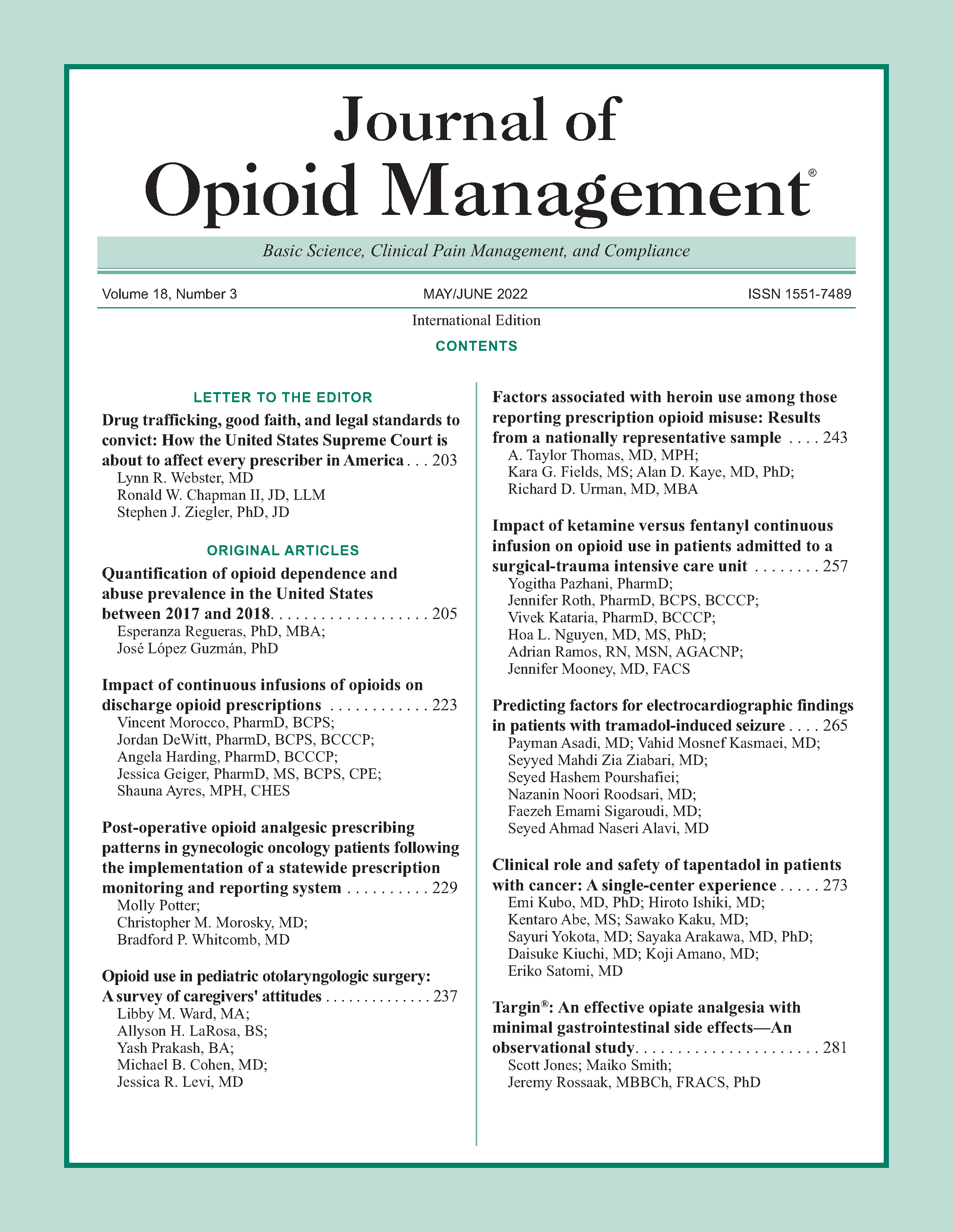Drug trafficking, good faith, and legal standards to convict: How the United States Supreme Court is about to affect every prescriber in America
DOI:
https://doi.org/10.5055/jom.2022.0711Keywords:
prescriber, opioid, legalAbstract
Dr. Xiulu Ruan was a pain specialist in Alabama and, following his conviction in 2017, was sentenced to serve over 20 years in federal prison for violating several provisions of the federal Controlled Substances Act (CSA) relating to his prescribing practices. Dr. Ruan appealed his conviction and, in March of this year, argued before the US Supreme Court that he had been wrongfully convicted because the trial court had denied his ability to assert a good-faith defense concerning the prescriptions he issued.1 The last time the Supreme Court interpreted the CSA and its application to criminal cases involving prescribers was almost 50 years ago. The central question now before the Court is whether the government must merely prove that the prescription was issued outside of an acceptable standard of practice (limiting the focus to the prescription itself), or whether the prescriber knew that the prescription was unlawful at the time it was written (focusing on the prescriber’s intent and whether the prescriber believed in good faith that the prescription was within the standard of care).2 While we argue here that it should be the latter, the Court’s ultimate decision will establish the standard the government can use to prosecute prescribers and will affect the practice of medicine for years to come.
References
Ruan v. United States, US Supreme Court Docket 20-1410: Available at: https://www.supremecourt.gov/search.aspx?filename=/docket/docketfiles/html/public/20-1410.html. Accessed April 7, 2022.
Ruan v. United States: Brief amici curiae of Stephen J. Ziegler, Lynn R. Webster, Michael A. Barnes, and the Center for US Policy, filed December 27, 2021. Available at: https://www.supremecourt.gov/search.aspx?filename=/docket/docketfiles/html/public/20-1410.html. Accessed April 7, 2022.
21 U.S.C. § 841(a)(1) (1970); 21 CFR § 1306.04 (1970) 4. Dowell D, Haegerich TM, Chou R: CDC guideline for prescribing opioids for chronic pain–United States, 2016. JAMA. 2016; 315(15): 1624-1645.
Dowell D, Haegerich T, Chou R: No Shortcuts to Safer Opioid Prescribing. N Engl J Med. 2019; 380(24): 2285-2287.
United States v. Newman, 2020 US Dist. LEXIS 2221891 (6th Cir. 2020).
Downloads
Published
How to Cite
Issue
Section
License
Copyright 2005-2025, Weston Medical Publishing, LLC and Journal of Opioid Management. All Rights Reserved.











